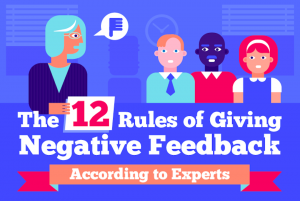Last week I hosted a webinar for our good friends at Early Growth Financial Services.
The topic of the webinar was “Hiring Strategies For Small Businesses” – a theme that I am (and have always been) extremely passionate about.
Over the last 20 years I have been fortunate enough to have recruited for some of the world’s most recognisable brands. However I can honestly say that my fondest memories involve working with some incredibly passionate and motivated owners of various small and medium sized businesses.
Whilst they never had any intention of having an international reach, they were 100% committed to building a team and creating a culture that many multinationals would have been envious of.
One of the reasons I have always been drawn to helping small businesses recruit is because far too often hiring can slip through the cracks simply because small business owners aren’t nearly as equipped to build their empires as their peers in the corporate world.
Here are some of the tips I shared during the webinar. Of course if you want the more fleshed out version, you can always listen to the recording below at any time.
1. Understand what you are really looking for
It isn’t good enough to say “I think we might need somebody to do X in the business“. Or “If we found someone with X skills, we could probably find enough other stuff to keep them busy“.
If you plan to bring someone new into your business, you have do be able to define exactly what they will be doing.
If you rush into hiring without knowing what you’re really after, you will end up paying for it … literally. After all if someone leaves your organisation within the first 6 months, it will cost you 3 – 4 times what you paid them.
Ouch.
2. Ensure you have job descriptions and performance profiles for every role
It goes without saying that most organisations (even SMBs), would probably have job descriptions for each position in the company. Here are some tips on how to craft a proper job description just to be sure.
However if you rely purely on the job description, you’ve only got half your bases covered. The job spec talks about the actual role, while the performance profile defines the attributes and (more importantly) the ultimate success of the candidate working in the role.
You must be able to define the success of the new employee at the 3,6,9, and 12 month period.
Remember you are not only looking for someone’s ability to get the job (you can determine this from a résumé). You are looking for someone’s ability to achieve and exceed in the role – and a job description won’t help you here.
The performance profile is also a tool that can be used right throughout the recruitment and on-boarding process, from phone screening to interviewing, right through performance appraisals.
3. Learn to distinguish between skills and competencies
When it comes to screening candidates, too many small business owners will focus purely on a potential candidate’s skill set.
For example do they have a particular qualification? Are they familiar with a certain piece of software? Are they proficient in Excel? Are they a good writer?
Skills can always be taught.
It’s far more important to decide what attributes or core competencies you are looking for in your new team member.
Are you looking for a team player or someone who will be happy to work on their own? Do you want someone who really wants to climb the corporate ladder or someone that will be comfortable working in a small office environment? Do you need someone ambitious, hungry and motivated or someone who will be happy to work on repetitive tasks?
Competencies are the natural traits or behaviours that make someone right for your company. They are intrinsic within every individual employee.
Think about what behaviours and values you want all your team members to demonstrate. You can always train someone who might not quite possess all the necessary skills for a job, but behaviours, attributes and competencies are very hard to change.
4. Crafting a job ad that will attract quality candidates
When it comes to job advertisements, it’s important that you target the right audience and attract high quality candidates as opposed to posting a job ad that will result in a tsunami of applications from the wrong candidates hitting your in-box.
Quality – not quantity.
You’ll find some quick tips to help you craft an engaging job advertisement here.
We’ve also produced an in-depth e-Book that will help you write job ads like a pro.
Job ads can’t be rushed and written at the last minute. Remember they are really the first impression a potential employee has not only about the job itself, but about your organisation.
5. Make sure you run a performance based interview process
You may have come across terms like behavioural based interviewing, targeted selection based interviewing, and competency based interviewing.
Each of these techniques assesses a candidate’s past performance and focuses on results.
Do not ask hypothetical questions (for example “how would you deal with a specific situation?”). The questions you ask a candidate during an interview must assess past behaviour since that is the best way to predict future performance.
You can find a list of 75 behavioural based questions here.
When assessing your candidates’ responses, think of the word STAR and ensure that your candidates describe a specific Situation, the Task they were faced with, the Action they took, and the Result of their actions.
I promise to write more about this STAR technique in an upcoming blog post.
6. Never make an offer to a candidate without conducting 2 verbal reference checks
It’s frightening to think of the number of people who will actually bring someone into their organisation simply relying on the feedback gained from a 2-minute phone conversation with a candidate’s former boss; perhaps trusting a 2-line email confirming the candidate’s dates of employment; or maybe without even carrying out any reference checks at all.
They’re usually badly burnt after 3 – 6 months of the new employee being in the job.
The questions you ask a candidate’s former employer need to align with the questions you asked the candidate during their interview – and need to relate back to the performance profile.
It’s not just a matter of finding out whether they’re ‘nice’ or ‘a good team player’.
Reference checks are an absolutely vital part of any recruitment process. And regardless of how impressive a candidate may have been when you interviewed them, you should never let the reference checking process slip through the cracks.





